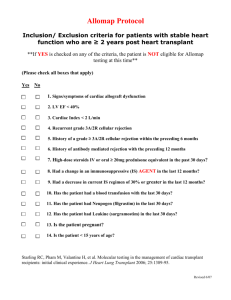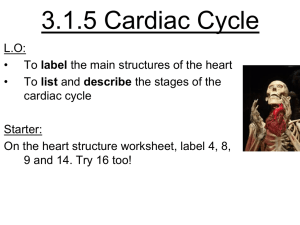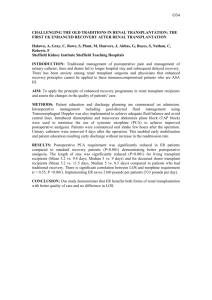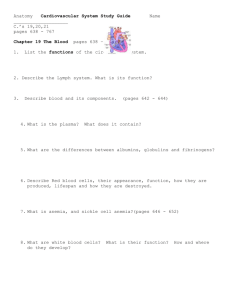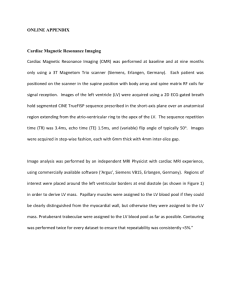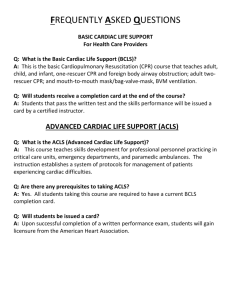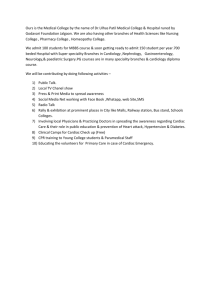Optimising post-transplant cardiac outcomes
advertisement
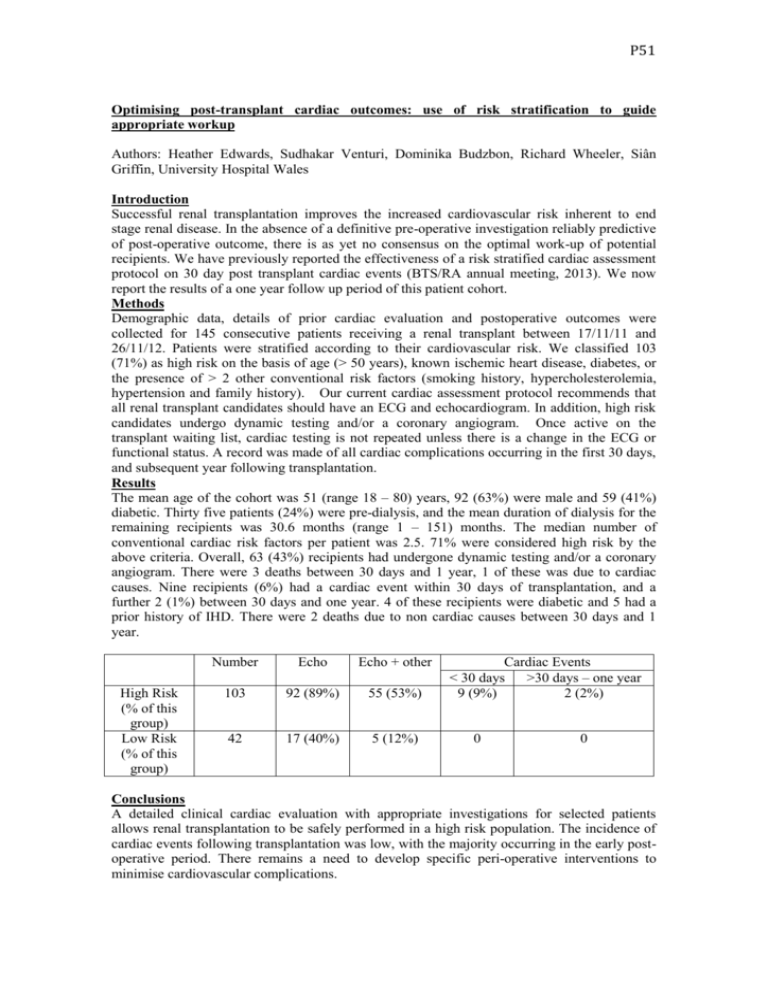
P51 Optimising post-transplant cardiac outcomes: use of risk stratification to guide appropriate workup Authors: Heather Edwards, Sudhakar Venturi, Dominika Budzbon, Richard Wheeler, Siân Griffin, University Hospital Wales Introduction Successful renal transplantation improves the increased cardiovascular risk inherent to end stage renal disease. In the absence of a definitive pre-operative investigation reliably predictive of post-operative outcome, there is as yet no consensus on the optimal work-up of potential recipients. We have previously reported the effectiveness of a risk stratified cardiac assessment protocol on 30 day post transplant cardiac events (BTS/RA annual meeting, 2013). We now report the results of a one year follow up period of this patient cohort. Methods Demographic data, details of prior cardiac evaluation and postoperative outcomes were collected for 145 consecutive patients receiving a renal transplant between 17/11/11 and 26/11/12. Patients were stratified according to their cardiovascular risk. We classified 103 (71%) as high risk on the basis of age (> 50 years), known ischemic heart disease, diabetes, or the presence of > 2 other conventional risk factors (smoking history, hypercholesterolemia, hypertension and family history). Our current cardiac assessment protocol recommends that all renal transplant candidates should have an ECG and echocardiogram. In addition, high risk candidates undergo dynamic testing and/or a coronary angiogram. Once active on the transplant waiting list, cardiac testing is not repeated unless there is a change in the ECG or functional status. A record was made of all cardiac complications occurring in the first 30 days, and subsequent year following transplantation. Results The mean age of the cohort was 51 (range 18 – 80) years, 92 (63%) were male and 59 (41%) diabetic. Thirty five patients (24%) were pre-dialysis, and the mean duration of dialysis for the remaining recipients was 30.6 months (range 1 – 151) months. The median number of conventional cardiac risk factors per patient was 2.5. 71% were considered high risk by the above criteria. Overall, 63 (43%) recipients had undergone dynamic testing and/or a coronary angiogram. There were 3 deaths between 30 days and 1 year, 1 of these was due to cardiac causes. Nine recipients (6%) had a cardiac event within 30 days of transplantation, and a further 2 (1%) between 30 days and one year. 4 of these recipients were diabetic and 5 had a prior history of IHD. There were 2 deaths due to non cardiac causes between 30 days and 1 year. High Risk (% of this group) Low Risk (% of this group) Number Echo Echo + other 103 92 (89%) 55 (53%) 42 17 (40%) 5 (12%) Cardiac Events < 30 days >30 days – one year 9 (9%) 2 (2%) 0 0 Conclusions A detailed clinical cardiac evaluation with appropriate investigations for selected patients allows renal transplantation to be safely performed in a high risk population. The incidence of cardiac events following transplantation was low, with the majority occurring in the early postoperative period. There remains a need to develop specific peri-operative interventions to minimise cardiovascular complications.
